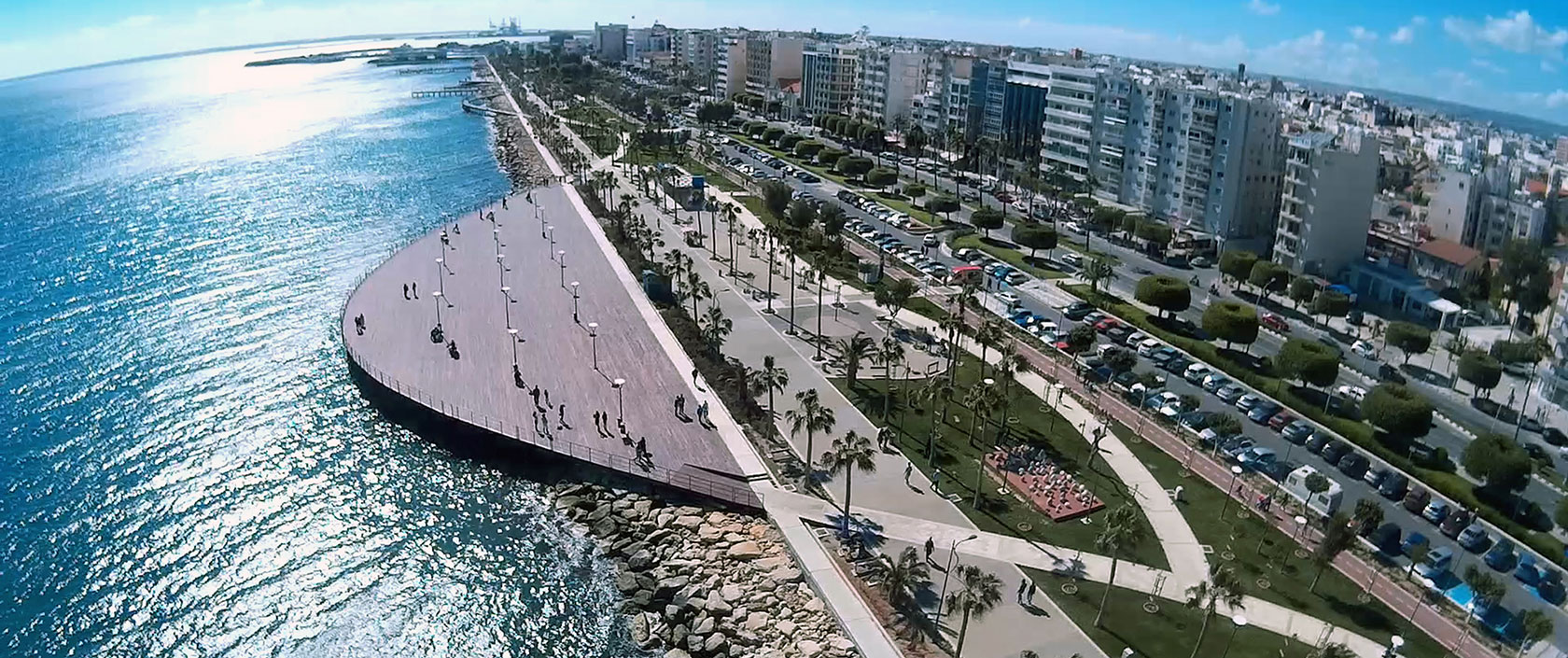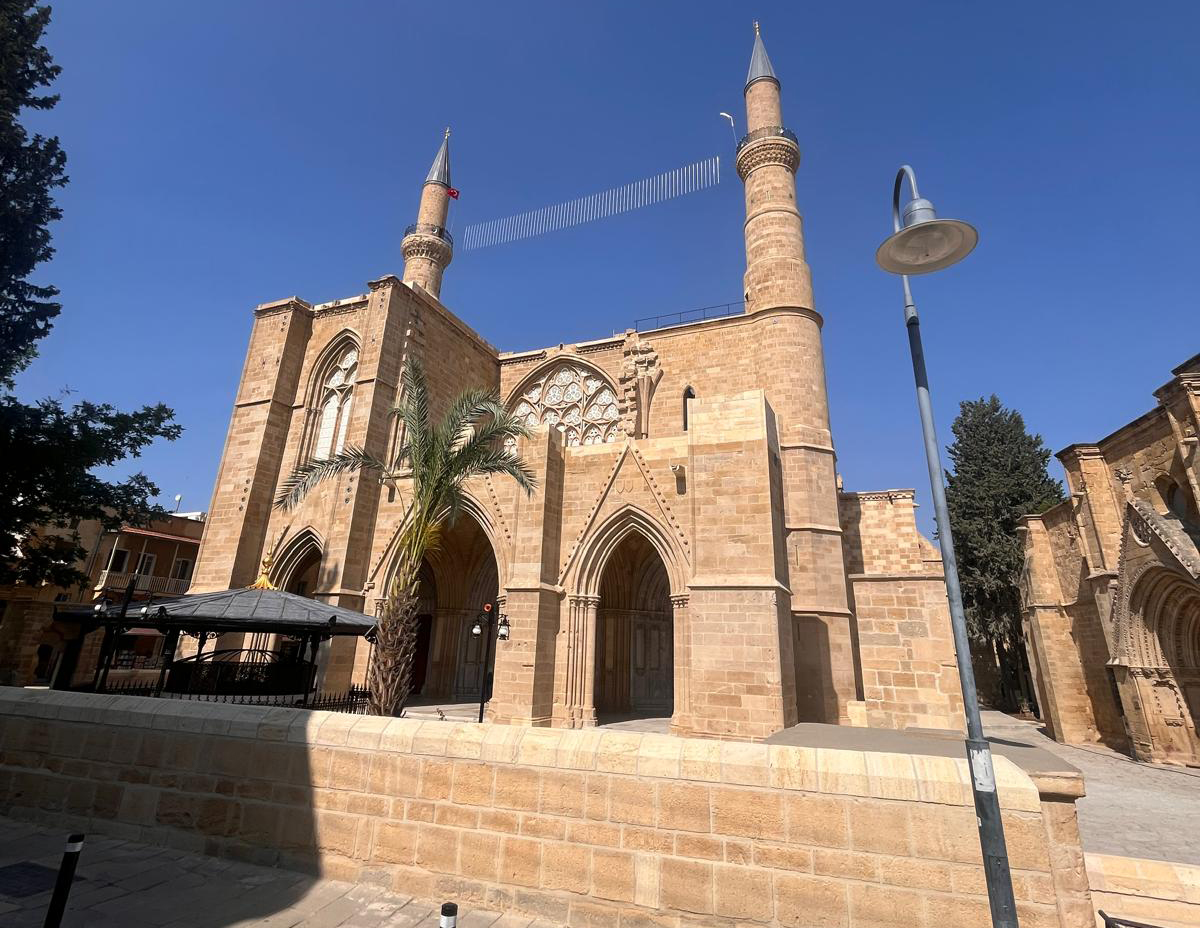Turkish Cypriot leader Ersin Tatar on Thursday said that it is “out of the question for me to remain silent” amid the arrests being made by the Republic of Cyprus of people accused of selling Greek Cypriot-owned property in the north.
In a statement released in light of a meeting he had held with the leaders of all four political parties represented in the north’s ‘parliament’, he went on to describe them as “hostile efforts”, which “target the property rights, the freedom of movement and the dignity of the Turkish Cypriot people”.
“Property transactions within the borders of the TRNC have been carried out consistently for years in accordance with our constitution and our laws. The most important pillar of this system, the Immovable Property Commission [IPC], has been recognised by the European Court of Human Rights [ECtHR] as an effective domestic legal remedy,” he said.
As such, he added, “the accusations made against this internationally recognised structure and the individuals who carry out transactions through this structure clearly show that [the Greek Cypriots] are acting with political, not legal motives”.
“Despite all this international legal basis, the Greek Cypriot leadership’s implementation of its oppressive policy for political reasons is nothing more than a weaponisation of the law. The fact that even the Greek Cypriot courts state that these prioritise politics over justice reveals the gravity of the situation,” he said.
For this reason, he said, “it is out of the question for me to remain silent in the face of these hostile efforts”, adding, “I reject these pressures, targeting the legitimacy of our IPC and our institutions, and I will resolutely continue the necessary political and legal initiatives to defend the rights of our people”.
Meanwhile, Kudret Ozersay, who served as chief negotiator for the Cyprus problem under former Turkish Cypriot leader Dervish Eroglu, criticised what he sees as a double standard between the treatment of Greek Cypriot property in the north and Turkish Cypriot property in the rest of the island.
“Although it moves slowly, a structure subject to ECtHR supervision has begun to form in our country. However, compensation payment regarding Turkish Cypriot properties in the south has been postponed until after a solution to the Cyprus problem and their ‘guardianship’ law is not subject to ECtHR supervision,” he told Gundem Kibris TV.
He therefore called for a bicommunal committee on property issues, potentially working in cooperation with the Council of Europe, to be formed so as to better deal with the matter.
“There are property violations on both sides of the island. We need to follow a proactive policy. There have been radical changes in the conditions. The establishment of this committee will also put pressure on the Greek Cypriot side,” he said.
He also said he had suggested that the Turkish Cypriot side meet with the United Nations “to convey to the Greek Cypriot side that the arrests should stop so that the two sides can come together”.
Additionally, he called for the north’s ‘parliament’ to pass a unanimous resolution deploring the arrests, while saying that the four parties represented in ‘parliament’ should pen a joint letter and “send it everywhere, including to the UN and to the European parliament”.
“The Greek Cypriot side is trying to render the IPC ineffective. We need to tell everyone this,” he said, before returning to the matter of Turkish Cypriot owned property outside the north.
“The Greek Cypriots … settled displaced persons in the properties. There is no compensation for any of them. Southern Cyprus says it will pay compensation but only after the Cyprus problem is resolved,” he said, adding that “the Greek Cypriot side does not treat original owners as human beings”.
“They gave the right to use Turkish Cypriot properties without the owner’s consent, and by that measure, we could also issue an arrest warrant,” he said.
He then added that “on the matter of natural gas, since the Turkish Cypriots’ consent was not obtained, an Interpol warrant could be issued via Turkey for the managers of all the companies which are or will be conducting natural gas exploration”.
“You need to make the other side feel that you will take countermeasures,” he added.
Then, he offered criticism for President Nikos Christodoulides and rubbished the idea that there is no political element to the arrests.
“We need to read correctly what the Greek Cypriot side is aiming for. Even if they say this is a legal issue, it is not credible, there is no legal issue here … These are political steps,” he said.
“The Greek Cypriot side is trying to harm our economy by creating fear and anxiety among the Turkish Cypriot side and is trying to put political pressure on us. Why now? Because of politics. Christodoulides’ support in public opinion polls in southern Cyprus is going down. He is experiencing difficulties.
“As such, he started to highlight the preferences of the people who brought him to office. He is trying to regain his public standing by satisfying the ultranationalist and more radical segments of society.”
Earlier this week, government spokesman Konstantinos Letymbiotis had insisted that the arrests are not political in their nature, telling journalists that “the Republic of Cyprus is acting within the framework of the rule of law, and the arrests for the usurpation of property concern the protection of basic human rights”.
Then asked whether it would be better for there to be a moratorium on such prosecutions so that they do not “come at the expense of talks on the Cyprus issue”, he said that “impunity for violations of property or human rights cannot be a condition, inside or outside of quotation marks, for talks or for an alleged indication of goodwill”.
However, many have not been convinced by Letymbiotis’ insistence.
Turkish Cypriot opposition political party the CTP’s foreign relations secretary Fikri Toros told the Cyprus Mail that Turkish Cypriots have been rendered “anxious, intimidated, and threatened” by the arrests.
“These feelings are reviving previous traumas experienced between 1963 and 1974,” he told the Cyprus Mail, adding that Turkish Cypriots “were left with no choice other than having the use of the properties abandoned by Greek Cypriots in one way or another”.
He added that the arrests are “clearly a political decision taken by the Greek Cypriot administration to inflict inhibition aimed at the impediment of economic development”, something he said will “ultimately lead to a further isolation of Turkish Cypriots, to the point of suffocation”.
He went on to say that the ongoing arrests and court cases have “toxified the political climate on our common homeland”.
Christodoulides had last week insisted that the arrests “will certainly not stop, no matter what Tatar says”, adding that “illegality cannot be justified in any way”, but also somewhat distanced himself from the arrests, insisting that “we do not interfere in the judiciary”.
Two Hungarian nationals were handed prison sentences over the matter last month, with the pair having admitted to promoting and advertising the sale of houses near Kyrenia on the internet.
Meanwhile, the case of a German national who reportedly spoke about selling property in the north to an off-duty police officer during a flight to Larnaca is ongoing and arrest warrants have been issued for four Turkish nationals in connection with developments in the Famagusta district village of Lefkoniko.







Click here to change your cookie preferences